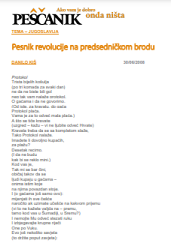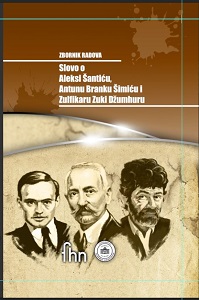
We kindly inform you that, as long as the subject affiliation of our 300.000+ articles is in progress, you might get unsufficient or no results on your third level or second level search. In this case, please broaden your search criteria.

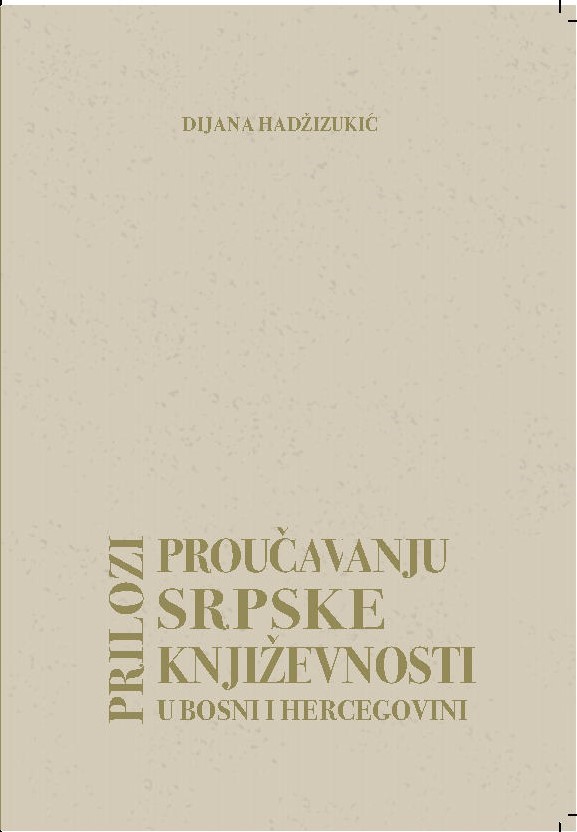
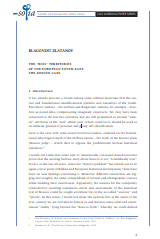
In the final chapter of Imagining the Balkans (1997), while advancing arguments on the concept of the Balkans as an Ottoman legacy, Maria Todorova writes: “Turning to the Ottoman legacy as perception, it has been and is being shaped by generations of historians, poets, writers, journalists and other intellectuals.” In the Bulgarian edition (1999), Todorova adds a paragraph with names of writers to which she was referring – Ivo Andric, Dimitar Talev, Dobrica Cosic, Nikos Kazandzakis, and Anton Donchev. Especially the Bulgarian figures lead us to the role of the historical novel in shaping this legacy. [...]
More...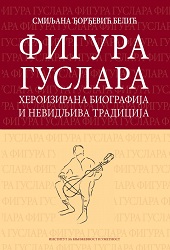
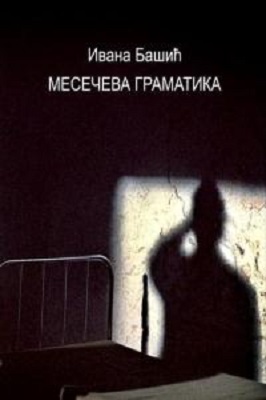
The monograph, The Moon Grammar - Identity and subjectivity in Doctor Faustus by Thomas Mann and The Damned Yard by Ivo Andric researches the subject of identity and the relation between subjective and objective, individual and collective, which are the focal points in contemporary anthropology, as well as in narratology with a distinctive difference that narratology is focused on the status and identity of the narrator and diversory relationship between the narrator and the narrative text. In this research the narrative analysis is used to outline the anthropological implications of the literature that was read from the narrative structure in Doctor Faustus by Thomas Mann and The Damned Yard by Ivo Andric. This indicates that the anthropological reading of literature could be based on analyses of the formal characteristics of the literature allowing the intentionality of a literary text. In the literary texts the intention is entangled with the way of structural expression because it activates and exploits the intentional potential of the language. Due to this reason we have concentrated on establishing the intentional structure in Doctor Faustus and in The Damned Yard through a narrative analysis to achieve a more thorough reconstruction of extensional structure of the narrative world and its distinctive anthropology, especially when the subjects of identity and subjectivity are analysed. Both literary works address aesthetical, ethical, religious, ideological, sociological and existential questions. On the aesthetical plane, after the fall of the totalitarian ideologies, the art displays symptoms of general intellectual climate. This period is characterised with criticisms of humanistic values of mind, objectivity of science and progressive ideas, including the traditions of Enlightenment. These literary works can be read as indicative announcements of postmodern suspicion in the human being as a self-identifying subject and as a forecast of contemporary crisis of identity. The result that these social, cultural or spiritual events have brought us could be characterised as alignment, problematizing or even eradication of identity borders of personality or as explicit continuation of Thomas Mann’s – Moon-grammar. Polyphonically organised narrative is analogue to the eradication of identity borders of personality, which sense is in displacement of monological unity of the narrative subject with itself regardless of the primary style of narration (from 1st person to 3rd person).
More...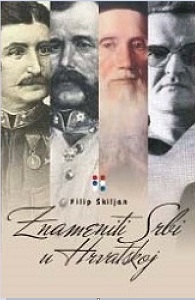
Srbi u Hrvatskoj nisu imali prilike upoznati se sa svojim znamenitim pripadnicima, a koji su na različitim područjima – religiji, umjetnosti, nauci, književnosti i politici – zadužili ne samo narod iz kojeg su potekli, ne samo Hrvatsku iz koje su potekli u kojoj su živjeli i stvarali nego i svijet kojem su svojim djelovanjem, stvaranjem i spoznavanjem doprinosili. Oni sami po sebi zavređuju da o njima održavamo i širimo znanja. Za Srbe u Hrvatskoj oni su važna mjesta identiteta i važna uporišta za njihovu integraciju u hrvatsko društvo. Upoznavanje ne samo Srba sa znamenitim Srbima iz Hrvatske veći i cijele Hrvatske neophodna je pretpostavka i za to da imamo drugačiju Hrvatsku, otvorenu za razlike, otvorenu za svoje veličine neovisno o tome koje su etničke ili vjerske pripadnosti. Hrvatska u kojoj ne bi bilo mjesta ne samo za Preradovića, Teslu i Desnicu, nego i za Rajačića, Milankovića, Runjanina, Viteza, Petrovića, Pribićevića, Nikoliša, Bakića i Mrkalja, ne bi bila Hrvatska otvorena za svoje sugrađane srpske nacionalnosti, niti bi bila Hrvatska koja bi živjela u skladu sa bogatstvom svojeg povijesnog i sadašnjeg identiteta.
More...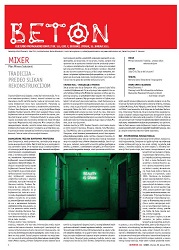
MIXER, Mirnes Sokolović: Tradicija - predeo slikan rekonstrukcijom; CEMENT, Saša Ćirić: Šta će biti s kućom?; ŠTRAFTA, Adriana Sabo: Obrazovane i bogougodne; VREME SMRTI I RAZONODE, Miloš Živanović: *, Predrag Lucić: Miris Kouachija na Balkanu, Aleksandar Novaković: Zbogom prošlosti - budi bolja s drugim
More...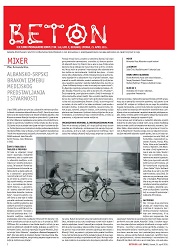
MIXER, Armanda Hisa: Albansko-srpski brakovi; antiCEMENT, Saša Ćirić: Otadžbina zveri i čekanje čuda; VREME SMRTI I RAZONODE, Đorđe Aćimović: Kada sam ostao bolestan..., Sergej Stanković: Čistač klozeta, Radivoj Šajtinac: Prijava za festival horova; BLOK BR. V, Diskoteka 3D: Srećan rođendan, gospodine Predsedniče
More...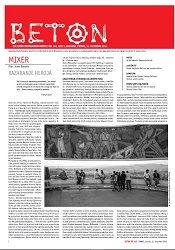
MIXER, Jerko Bakotin: Razaranje herojâ; antiCEMENT, Đorđe Krajišnik: Na kraju sve postane istina; ARMATURA, Gazela Pudar Draško i Jelena Ćeriman: Školom protiv nasilja; VREME SMRTI I RAZONODE, Radivoj Šajtinac: Bei Dao mi šapuće, Denisa Duran: Otac
More...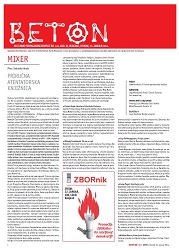
MIXER, Selvedin Avdić: Priručna atentatorska knjižica; ARMATURA, Olga Manojlović Pintar i Danilo Šarenac: Prvi svetski rat; VREME SMRTI I RAZONODE, Predrag Lucić: Melodija Srba i čekića, Miloš Živanović: Koridor 10; BLOK BR. V, Lazar Bodroža: Nacija sunovrat
More...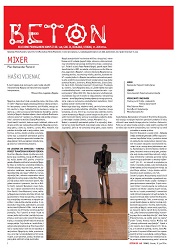
MIXER, Aleksandar Pavlović: Haški vijenac; CEMENT, Irena Javorski: Putevi samoemancipacije; VREME SMRTI I RAZONODE, Predrag Lucić: Srbija - predvodnik Pokreta svesvrstanih, Nika Dušanov: Mrtvi, Boris Marić: Globalizacija, Miloš Živanović: Živi
More...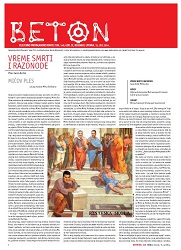
VREME SMRTI I RAZONODE, Geza Antal: Mičov ples; MIXER, Biljana Andonovska: Mali avangardni časopis koji bi se zvao časopis; CEMENT, Mirnes Sokolović: Visoke peći neutralnosti
More...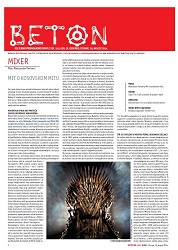
MIXER, Aleksandar Pavlović: Mit o kosovskom mitu; CEMENT, Saša Ćirić: Traži se praher za ljubavni tepih; ARMATURA, Adriana Sabo: Eh, ta (vražija) sloboda izbora; VREME SMRTI I RAZONODE, Andreja Dugandžić: Smokvin list
More...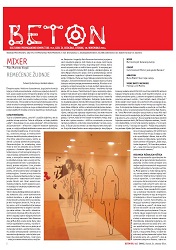
MIXER, Marinko Vorgić: Remećenje žudnje; CEMENT, Haris Imamović: Momci, jeste gledali Neretvu?; ARMATURA, Marko Miletić: Stvari koje nestaju; VREME SMRTI I RAZONODE, Predrag Lucić: Malvina
More...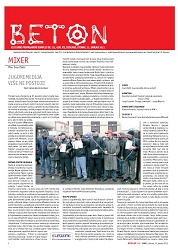
MIXER, Ivan Zlatić: Jugoremedija više ne postoji!; ARMATURA, Zagorka Golubović: Izazovi i prepreke savremene levice u Srbiji, Sonja Gočanin: Prodaja „nevinosti“ - slučaj Miljorini; VREME SMRTI I RAZONODE, Vladimir Arsenić: Faction/friction iz NIN-a; BLOK BR. V, Aleksa Jovanović i Lazar Bodroža: Avanture zeca Milorada
More...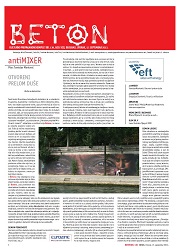
antiMIXER, Tomislav Marković: Otvoreni prelom duše; antiCEMENT, Dragoljub Stanković: Pucanj u militarizam; ARMATURA, Jelena Veljić i Matija Medenica: Akademska interesna zajednica; VREME SMRTI I RAZONODE, Mileta Mijatović: Iz zemlje se vadi...; BLOK BR. V, Lazar Bodroža: Njegoš 3000
More...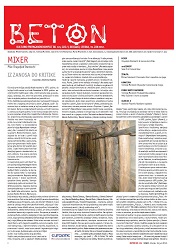
MIXER, Dragoljub Stanković: Iz zanosa do kritike; antiCEMENT, Saša Ćirić: Istarski bluz; ŠTRAFTA, Mirnes Sokolović: O konceptu Sica i napadima na njega; ARMATURA, Tomislav Marković: Okupacija i kamenovanje mozga; VREME SMRTI I RAZONODE, Tomislav Marković: Predsednička zakletva, Nika Dušanov: U kanti za otpatke; BLOK BR. V, Radovan Popović: Razbijeno ogledalo
More...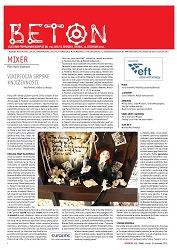
MIXER, Haris Imamović: Vikipedija srpske književnosti; antiCEMENT, Goran Cvetković: Naličje samostalnosti; ARMATURA, Milivoj Bešlin, Srđan Milošević, Olivera Milosavljević: Istorija i politika istorije: Naučno znanje vs. upotreba prošlosti; VREME SMRTI I RAZONODE, Haris Imamović: Mešanci, Predrag Lucić: Voleo me jedan vladika; BLOK BR. V, Wostok: Mita Kombajn
More...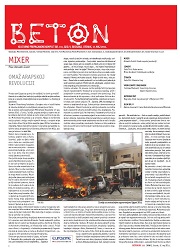
MIXER, Almedin Zukić: Omaž arapskoj revoluciji; CEMENT, Saša Ćirić: Kuda sestro, Milan Đorđević: Individualno viđenje; ŠTRAFTA, Saša Ilić: Silazak u Hag; VREME SMRTI I RAZONODE, Tomislav Marković: Toponim je bio vreo, Saveti mladom piscu; BETONSKI ŠUT, Nagrada „Poziv na putovanje“ s Manjanom i P70; BLOK BR. V, Aleksa Jovanović i Lazar Bodroža: Avanture zeca Milorada
More...